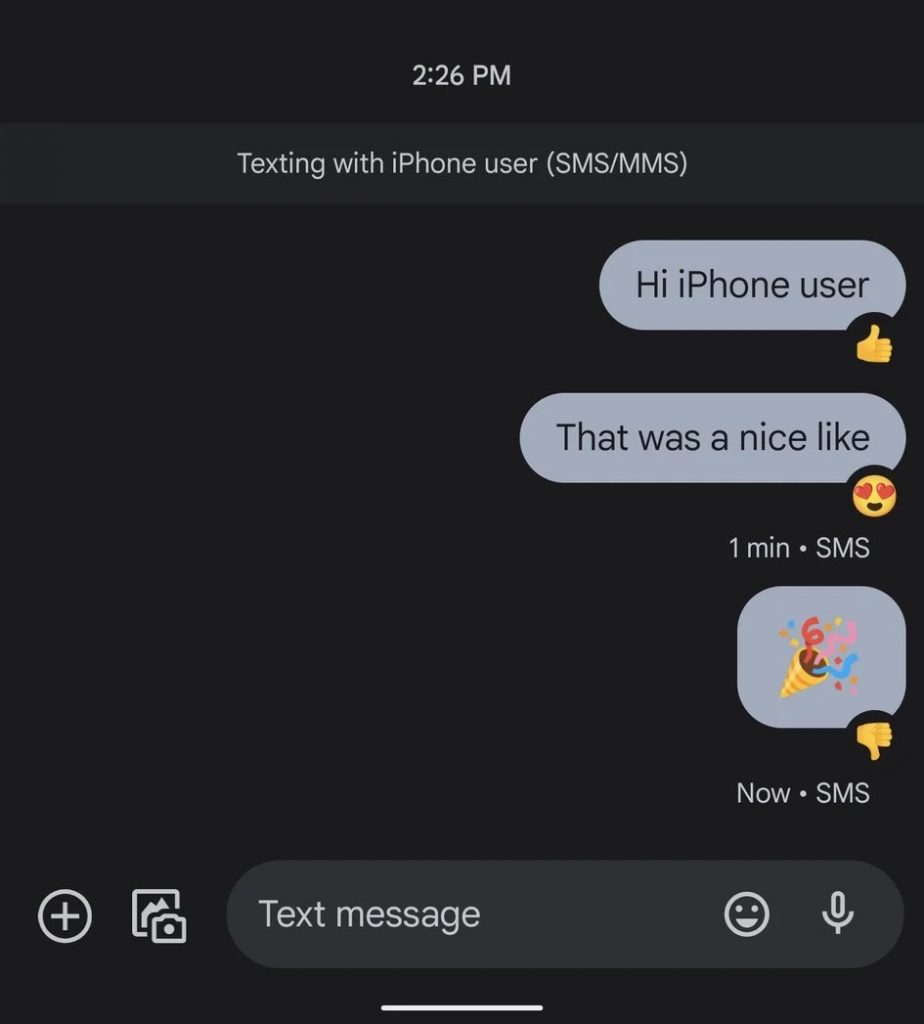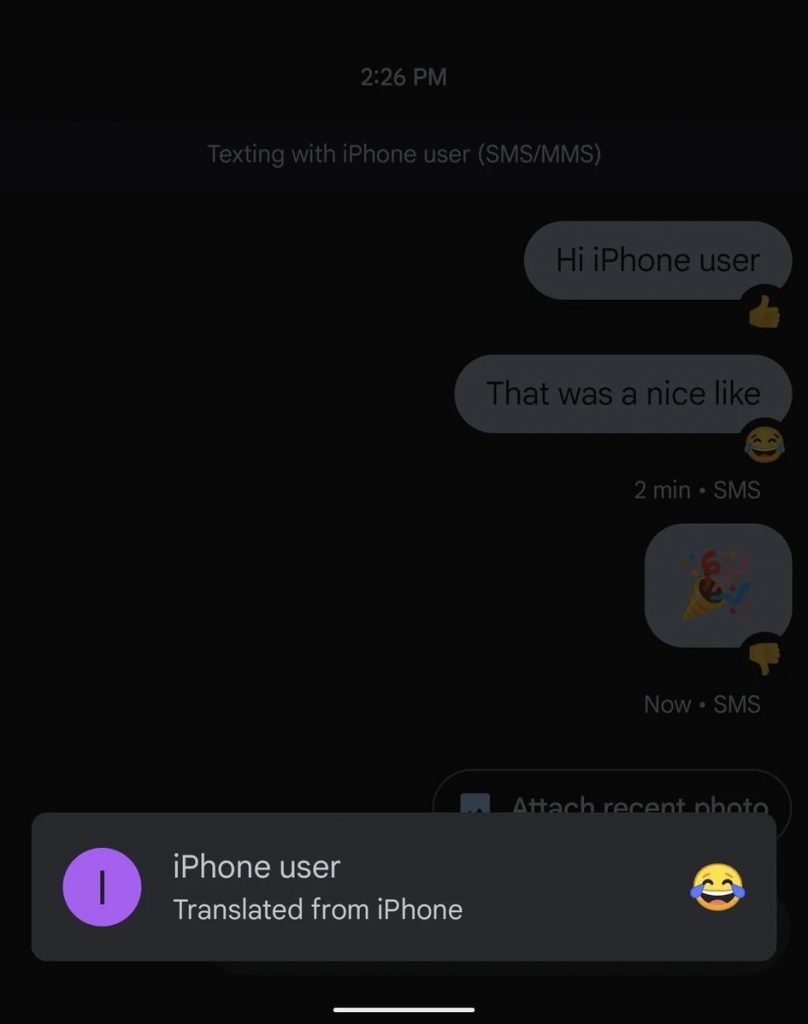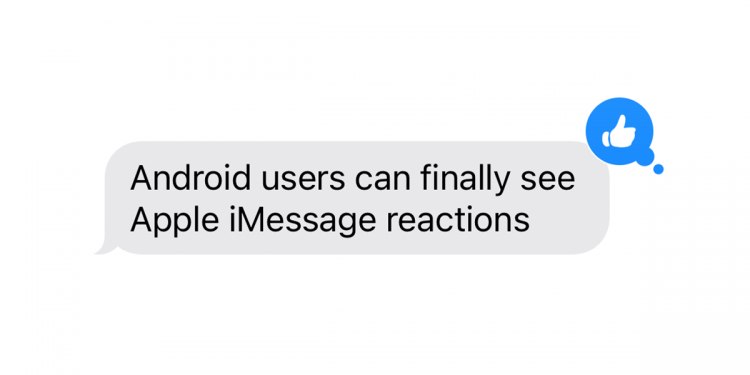Thanks to an update for Google Messages, Android phones can now finally support Apple’s iMessage reactions, using emojis to display them.
iMessage has always been one of the factors that keeps Apple users in the Apple ecosystem. Many users cannot fathom having a green text bubble instead of a blue one. Android phones can obviously send text messages to iPhones, but one of the things they historically couldn’t handle is iMessage reactions.
On Apple products, you can ‘react’ to a text or an image with six options: a heart, like, dislike, laughter, exclamation, or a question mark. If you try to ‘like’ a text sent by an Android phone, they will just receive a text saying “Liked “*insert message here*”“. This led to clunky text histories and an experience that was not very aesthetically pleasing.

This new update allows for Android devices to support these reactions through the Google Messages app. Note that the regular messaging app that comes with your phone will not support this. You have to go into the Google Play Store and download the Messages app there.

The way it works is an interesting mystery. It seems to sense whenever a “Liked “*insert message here*”” message is sent, and translates that into a reaction with an emoji. The mystery comes when reacting to images, as Android users normally just get a message saying “Liked an image”. Will it simply react to the latest image sent, or would it not even translate the reaction? We’ll have to wait and see.
The feature is currently rolling out to select users, with even beta testers having trouble getting the feature. Hopefully it becomes available for all users soon so chats from around the world will be a little less cluttered.
Google is using RCS (Rich Communication Service), which is basically their version of iMessage. Unlike SMS, RCS uses a data connection so it’s able to handle 8,000 characters instead of SMS’ 160 character limit.
Since iMessage is one of Apple’s biggest weapons when it comes to customer loyalty, it would be interesting to see how Apple reacts to this. Will they make it harder for Android phones to translate reactions, or will they just let it be? Only time will tell.
[ SOURCE ]








